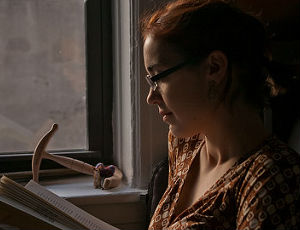Going with the idea that the personal is political, those involved with women's liberation often write first-person narratives of their lives and work. These are three of the most recent and entertaining.
Author and journalist Jessica Valenti writes of the psychological effects of sexism in her memoir Sex Object. From her family history of abuse to the obscene things said and done to her on the subway as an adolescent to trying to raise her daughter to be safe and free, Valenti points out that misogyny is pervasive and severely detrimental to women's mental health. Yes, she says, women may have come a long way, but we have so much further to go, and men need to come with us. While a quick and often funny read, Valenti is deadly serious in her message, ending with the online comments made when she posted her author photo on Facebook. If you want to know why women are angry, Sex Object is necessary reading.
Gloria Steinem's My Life on the Road has a more uplifting tone. Also a memoir, this latest book by Steinem describes her life of almost constant motion, both with her parents as a young child and then again after high school and since. Steinem figured out quickly in her early adulthood that the purpose of travel is to learn, and so she did: from "talking circles" in India to the Native American women who taught her about balance, particularly between the road and home. Along the way, Steinem organized groups of black and white women to talk about their oppression in the wake of the 1963 March on Washington (the germs of third-wave feminism) and campaigned for various political leaders including Geraldine Ferraro as well as various social causes. Inspiring and honest, My Life on the Road is the story of a woman learning to listen to the world around her.
In Susan Faludi's In the Darkroom, we get a memoir of Faludi's father. She was an abusive husband and father, true, but also a Jewish guttersnipe in Nazi-occupied Hungary and later a transsexual woman named Stephanie. With the gimlet eye of a journalist, Faludi hunts down her father's past and deals with their estrangement of 25 years, which ended with her father contacting Faludi after her transition. It quickly becomes obvious where Susan got her courage for books like Backlash when one considers that Stephanie rescued her parents from a train bound for the camps with little more than a Red Arrow armband and cap and some serious chutzpah. Susan also looks at the history of Hungary and its anti-Semitism and gender politics with the same journalist's perception. Faludi ends by seeing her father's decisions with compassion despite their contentious relationship.
There are lots of feminist memoirs out there. Tell us about your favorites in the comments.



Add a comment to: A Woman in Charge of Her Life: 3 Recent Feminist Memoirs